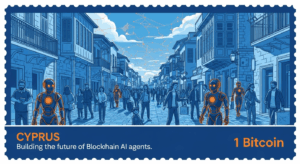
As metaverses operate in real-time their wide adoption is expected to create digital public spaces for interaction in which the already possible online interactions are intensified and blended with the physical world as never before.
To lead in this field and maximize positive implications, Europe needs to ensure that new multi-dimensional challenges arising, are addressed in accordance with European values. AGORA responds to the lack of doctoral programs which go beyond the technical understanding of Metaverses and consider its business and social value while unpacking and addressing potential unintended consequences.
Combining theoretical and hands-on industrial research and transferable skills training will enable researchers to target high-quality publication outlets and to become creative and autonomous so that they can exploit and commercialize research results and become competitive in the global arena. One of AGORA’s unique selling points is its ability to prepare the ESRs to work in any of the three pathways (academia, industry, policy making) as well as their intersections.
AGORA’s inter-sectoral network brings together leading academic and non-academic co-supervision arrangements of high quality, stimulates the development of new industrial doctoral training procedures between top business schools and industries in the region.
To expand the knowledge of the new generation of researchers on Metaverses’ multilevel value creation. AGORA’s graduates will hold interdisciplinary knowledge on both the Metaverse infrastructure and its business and societal implications, thus bridging this knowledge gap with their capabilities.
Through a rigorous and robust research and training programme, AGORA aims to develop a critical research and talent base capable of leading by example. AGORA’s approach is to train the researchers not only to understand Metaverse's infrastructure but also to understand and oscillate between the different levels of Metaverse’s business and societal value, paving in this way a more integrated understanding of this disruptive ecosystem.
The AGORA programme of studies will provide transdisciplinary training to DCs that builds on joint mentoring of individual research projects (PhDs), innovative and participatory methods, to enhance the DCs’ soft skills, and networking and career building activities that will strengthen their future prospects, be it within academia, industry or policy making.

Young scientists in Europe should be trained to lead this initiative by addressing challenges associated with the Metaverse and maximising its business and societal value at different levels. These challenges pertain to the usefulness and the ease of using the Metaverse by users. Unless these challenges are considered and addressed, it will be impossible to identify pathways towards identifying and securing the potential value for businesses and how that might be generated through various delivery channels.
As Metaverses operate in real-time, their wide adoption is expected to create digital public spaces for interaction (similar to ancient Greek agoras) in which the already possible online interactions are intensified and blended with the physical world as never before. It is thus expected that Metaverses will generate value by releasing a new spectrum of opportunities at different levels. At the same time, ecosystem transformation will require identity management and forging alliances, whereby new challenges may emerge. To unlock the Metaverse’s full potential, it is important to ensure that new multidimensional challenges arising from the use of Metaverses.
